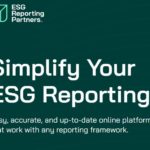IFC, a member of the World Bank Group, today announced a joint project with the Global Reporting Initiative to help companies in emerging markets improve relationships with stakeholders and attract investors by better measuring, managing, and reporting their contribution to socially and environmentally sustainable development.
IFC and GRI will focus on bringing much-needed training and information to emerging markets on how to do GRI-based sustainability reporting. Certified training partners will soon be available in the Republic of Korea and South Africa, and in Latin America and other regions. In addition, a series of educational publications and online forums for practitioners will help forward-thinking companies become leading sustainability reporters.
The partnership with GRI is central to a new IFC advisory service that focuses on helping companies align their corporate social responsibility efforts with core business priorities. It is being tested in Brazil, China, and India.
Rachel Kyte, IFC Vice President for Business Advisory Services, said, "Good reporting is linked to corporate strategy. Deciding how to report and what to report helps focus a company’s efforts and resources on tackling the most important sustainability issues affecting its business. It is also a way to demonstrate good management and performance in a way that attracts investors like IFC that increasingly assess these issues before investing."
Nelmara Arbex, Director of Learning and Services at GRI, said, "Time and again we hear that sustainability reporting is valuable in helping companies drive improvements to management systems and identify new risks and opportunities for their businesses. We’ve also been inundated with requests for training and more resources to help companies get started reporting on sustainability. We are delighted to have IFC as a partner in responding to this growing momentum in emerging markets."
GRI’s guidelines for sustainability reporting are the most widely used global framework for companies and other organizations to publicly disclose their economic, social, and environmental performance in a systematic way. The guidelines are the only nonfinancial reporting framework developed and updated using a rigorous process involving many stakeholders. They represent the best current thinking on sustainability reporting.



